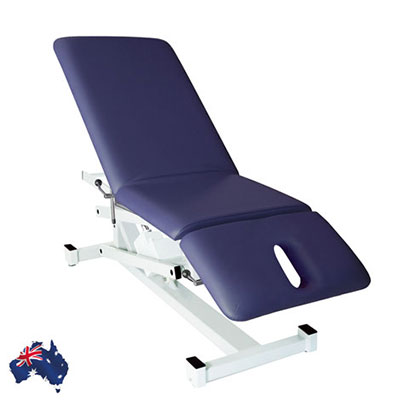Small business operators have been urged to take as much care of their mental health and wellbeing as they do of cashflow and serving customers.
The Australian Small Business and Family Enterprise Ombudsman has published online resources and links to raise awareness of wellbeing issues and warning signs.
Ombudsman Kate Carnell said high levels of stress and long working hours left small business people vulnerable to fatigue, anxiety and depression.
“It can be tough starting and growing a small business. Often the hours are long, cash can be tight and you have to constantly overcome obstacles,” Ms Carnell said.
“The results of our payment times inquiry found the stress of late payments, cashflow and debt affected the wellbeing of more than three quarters of small business owners surveyed.
“Ninety-three per cent reported personal and family hardship as a result of late payment.”
Ms Carnell said good mental health was critical to the success of a business.
The recent Suncorp SME vs Me Report found that owners of small and medium-sized businesses (SMEs) were blurring the lines between their personal and business finances, which impacts on their wellbeing.
More than two thirds of owners had experienced personal challenges including fatigue, financial stress, loss of motivation and relationship strain because of work-related matters.
The founder of Billie Goat Soap, Leanne Faulkner, has told her story of struggling with depression while trying to keep her business afloat during the global financial crisis.
Leanne sought help from a local counsellor and completed the beyondblue program, Business in Mind. After three months she was able to return to work part-time, taking on jobs at her own pace and, with careful planning, eased back into the workplace and her role as the business owner.
The skincare entrepreneur made milk from her goat herd to soothe her son’s sensitive skin. From a kitchen table, she developed Billie Goat Soap and built a venture that at its peak turned over $2.4 million annually.
But in 2011 Billie Goat’s growth slowed sharply as the retail climate weakened, and Leanne suffered debilitating depression.
Tough decisions were needed. Leanne, like so many other entrepreneurs, went from dreaming about faster growth to staying awake at night and panicking about how she would pay staff and creditors.
The hardest part was keeping face with employees, customers, suppliers and the public.

The-then 46-year-old, an energetic, optimistic wife and mother to two young boys, started plunging into a deep depression.
She could not stop crying on the way to work. Business problems hit her hard and she was in a dark hole that seemed impossible to climb out of.
“When you are closely associated with the brand, it’s very hard to tell people you are not well and suffering depression,” she says.
“Everybody expects you to be successful. You worry that nobody will want to deal with your company if they know if it is led by someone who’s not well. You think if you tell the world you have depression, that that will be the final nail for your business.
“I thought I was the problem, not the business. I found these superficial success stories were very damaging. In some ways it was like a schoolgirl getting anorexia because she thinks super models are the norm.
“It took me a long time to realise that very successful entrepreneurs are the exception.”
At the time Leanne found it difficult to find support that was specifically targeted for owners of small and medium-size enterprises.
“Everything seemed geared for big business or employees. I felt nobody understood what I was going through. When counselling initially failed, I thought I was beyond help. I thought nobody understood what I was going through.
“I would cry on the way to work, and sit in my car and work up the courage to go into the office. I’d have to put my make-up on several times, get myself together, and pretend as if everything was fine.
“It got to the point where I started saying no to all public events for the company and stopped going to work.
“I would get out of bed in the morning and sit on the lounge and cry. I would have lunch with friends and cry about the problems in my business. I just had this unrelenting sadness about the problems in the business and couldn’t see that is was due to overall market weakness rather than me.”
Leanne credits her husband, Jim Dimond, for helping her overcome depression. She eventually found a psychologist who diagnosed her as having situational depression, and found great value in the University of Tasmania’s Business In Mind project for small business owners with stress and depression.
“I’d say I’m 80 per cent recovered and getting better,” says Faulkner. “I still have work-related depression triggers, but know how to deal with them much better now.
“Having depression was the worst year of my life, but in some ways it was a learning experience that made me a much more rounded, grounded person. I just hope other business owners can recognise the symptoms earlier than I did and find specialist support.”
For assistance or more information:
ASBFEO mental wellbeing
beyondblue Business in Mind
Heads Up
Fortitude at Work




